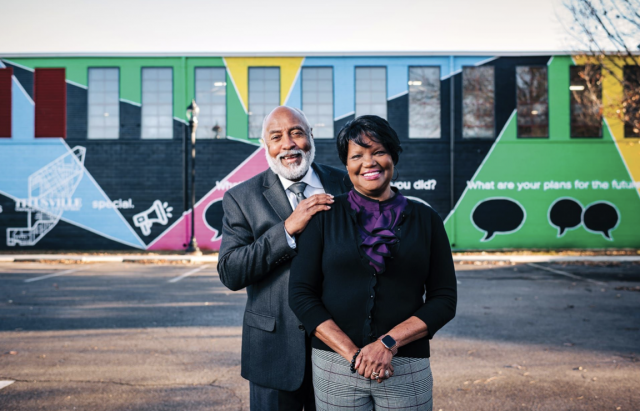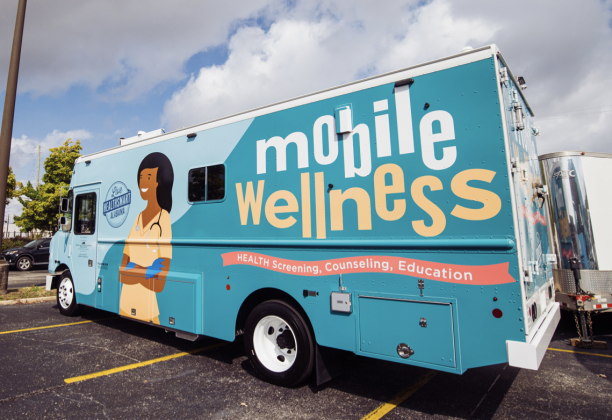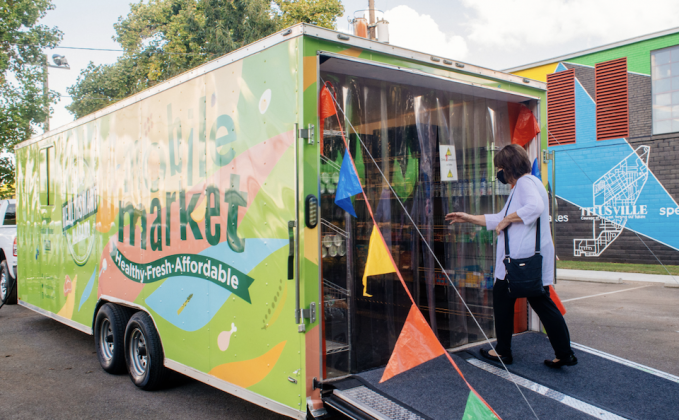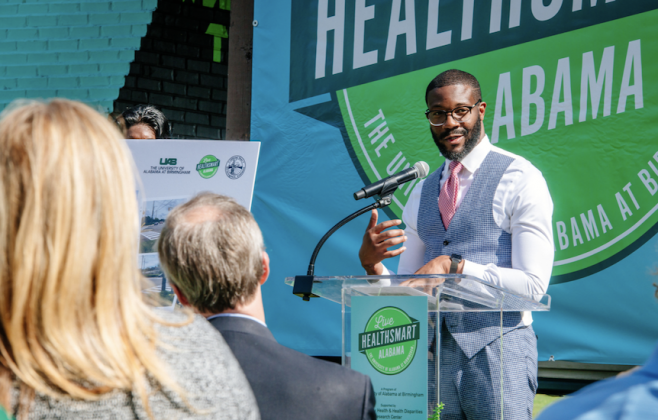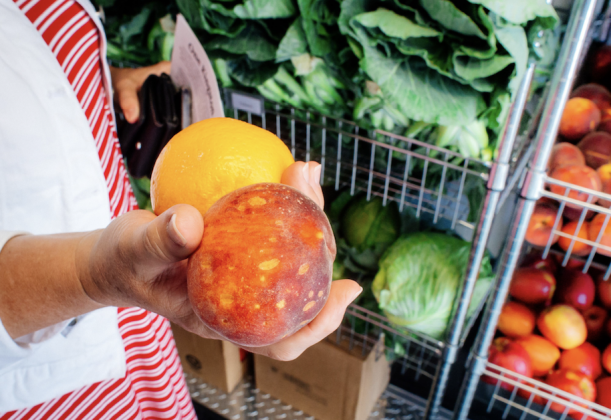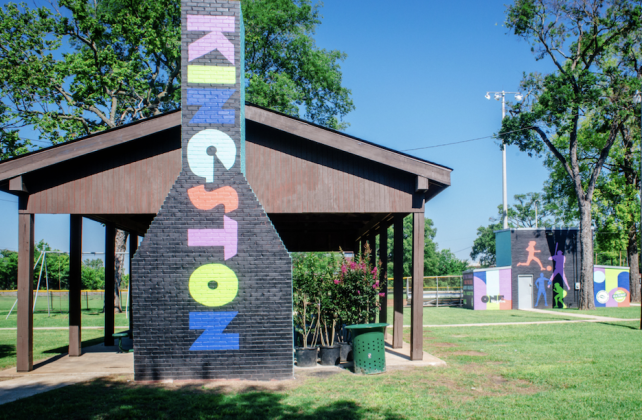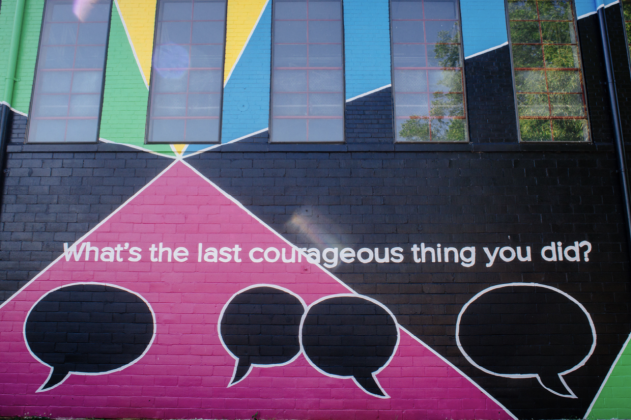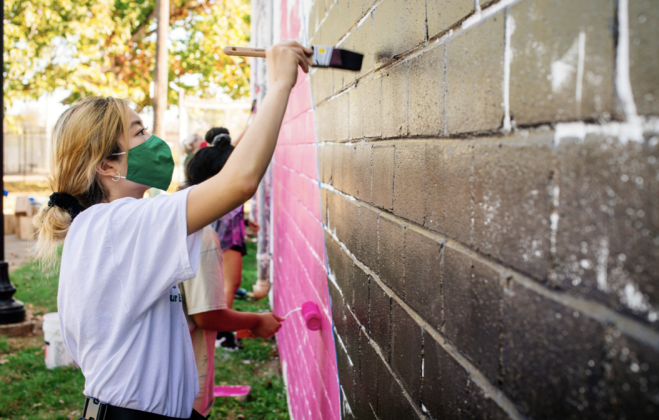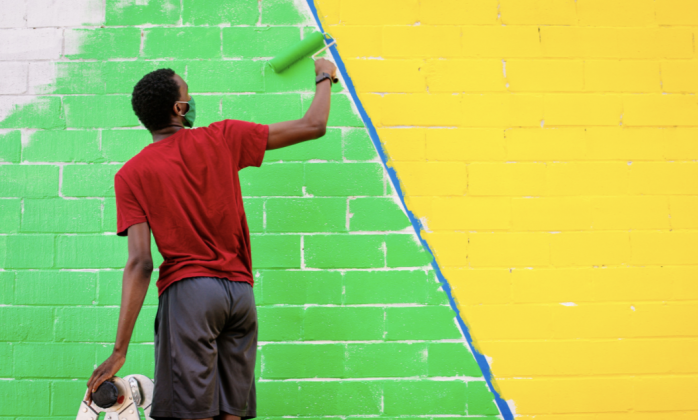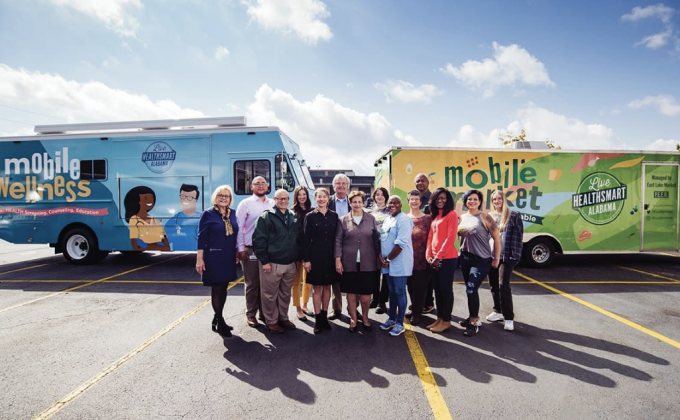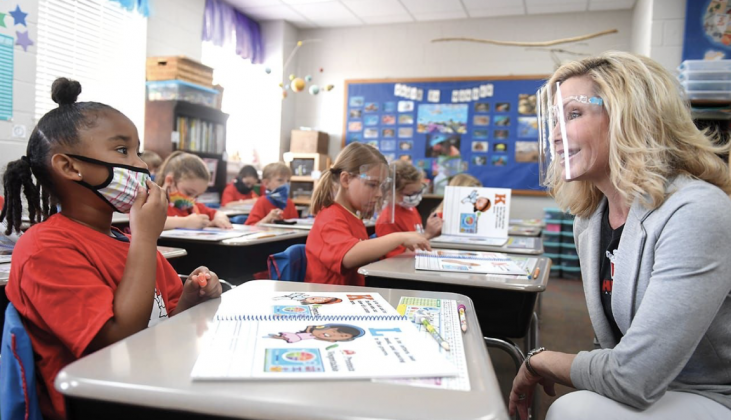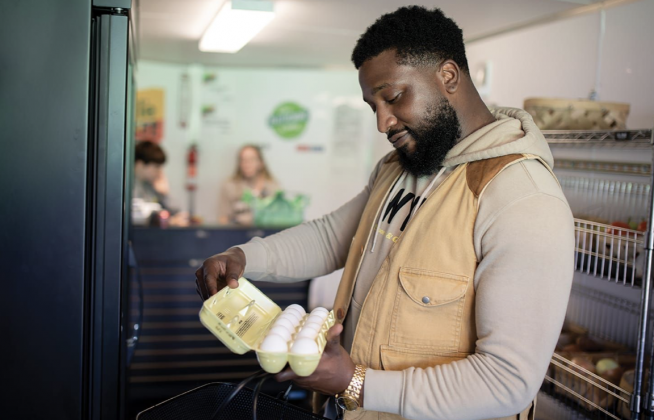By Matt Windsor
UAB
When Rev. Martin Luther King, Jr., wrote his famous “Letter from Birmingham Jail” in 1963, he was actually behind bars in Titusville, just west of UAB’s campus. This was one of the first neighborhoods in Birmingham where Black people could own commercial and residential property. But times changed. The local industrial jobs moved elsewhere, and today, many of the remaining residents are elderly. The closest store with a variety of fruits and vegetables is a lengthy drive away.
“In Titusville, we always felt like the little ugly child across the street that no one wants to say hello to,” says Bishop Demetrics Roscoe, who, with his wife, Pastor Pauline Roscoe, leads Living Church Ministries in the neighborhood.
Many of the houses don’t have adequate heat in winter or cooling in summer, so the Roscoes open the church building on cold nights and sweltering days. They have distributed food and held GED programs and clothing drives. During the school year, Pastor Roscoe teaches a Bible study for middle-school students at Titusville’s Washington K-8 school, and Bishop Roscoe runs a club for students interested in aviation. (The Roscoe children are all serving in the military and one son was a member of the U.S. Navy’s Blue Angels’ flight team.)
In 2019, a group from UAB led by Mona Fouad, M.D., M.P.H., met with the Roscoes and other community leaders at the church to talk about Live HealthSmart Alabama. The initiative aimed to improve the health of residents in neighborhoods like Titusville, Fouad explained. But she and her team were not bringing a pre-set group of programs or ideas on what was needed.
“I was surprised and encouraged to know that someone else was interested in our community,” Pastor Roscoe says. “They asked about the needs, and I suggested some way to get fresh, healthy foods, because Titusville is a food desert.”
Before long, the Live HealthSmart Alabama team returned with the Mobile Market. It is a grocery store on wheels, packed with fresh, local produce and proteins such as chicken. Created in partnership with two nearby nonprofits, the Mobile Market offers low prices and a wide variety of payment options, including Double Up Bucks, a national program that lets customers spend twice their SNAP or EBT purchases up to $20 if they are buying fruits and vegetables. The Mobile Market comes to Titusville regularly as it makes the rounds of several Birmingham neighborhoods. It always draws a crowd. “The Mobile Market has been such a blessing to people in the neighborhood,” Pastor Roscoe says.
“Once people realize where we are, they are repeat customers every time,” says Angela Arrington, of PEER Inc., who handles operations for the Mobile Market. “They come out in the rain, shine, cold, and hot.” PEER runs several food-related programs in East Lake, including a farmer’s market, diner, and bakery. Arrington had started a monthly mobile farm stand out of the East Lake Farmer’s Market, taking boxes of produce, a tent, and a table in a van or her SUV.
Live HealthSmart Alabama expanded on the idea and purchased the truck and trailer needed to make it happen. Arrington’s connections to local farmers through the farmer’s market, plus purchasing in conjunction with an East Lake grocer, supplies the Mobile Market with produce as well as meats, dairy, flour, and more. Especially during the warmer months, fruits and vegetables don’t stay on the shelves long.
“All summer long, everyone was buying all the produce,” Arrington says. The Double Up Bucks especially help shoppers fill their pantries, she adds. “They can spend $20 on groceries and get $20 of fresh produce. So you don’t have to say, ‘I would love to get produce, but I can’t afford it.’”
A GRAND CHALLENGE
Live HealthSmart Alabama was the inaugural winner of UAB’s Grand Challenge in 2019 and had just begun to roll out as the pandemic began. “We had to pivot when COVID hit, but we didn’t stop and stay behind our walls at UAB,” says Fouad, who is chief executive officer of Live HealthSmart Alabama, professor in the Heersink School of Medicine, and director of the UAB Minority Health & Health Disparities Research Center (MHRC). The relationships and experience built over 20 years with the MHRC “was the foundation for Live HealthSmart Alabama,” Fouad says. “What we learned made us ready to roll out something really ambitious.”
Chief among those lessons is the importance of asking communities what they need and proving that you are there for the long term. Titusville and East Lake, plus two other neighborhoods—Kingston and Bush Hills—were selected as the first Live HealthSmart Alabama demonstration zones. All were short on COVID testing and sources of information about the disease that people could trust.
But they already trusted the Roscoes. “People in the community know us and see us partnering with UAB,” Pastor Roscoe says. “That helps them know they can trust UAB.”
By working with the UAB Health System and the Community Foundation of Greater Birmingham, Live HealthSmart Alabama brought mobile COVID testing to churches such as Living Church Ministries and other community gathering places. In Oct. 2021, Live HealthSmart Alabama launched a counterpart to the Mobile Market. The Mobile Wellness Van is staffed by UAB medical students and offers free blood pressure, cholesterol, diabetes, and other screenings, as well as education on topics such as how to quit smoking.
The pandemic paused many of the planned educational events and health fairs in its demonstration zones, but Fouad and her team decided to press ahead with another pillar of their plan: improving the built environment in those zones to encourage physical activity, wellness, and good nutrition.
“Construction companies and the city—our key partners—continued to work even while everything else was shut down,” Fouad says. In 2020 and 2021, Titusville residents gained 7,900 linear feet of new sidewalks, brighter street lighting, two new heated bus shelters, and more trees on First Street South, the neighborhood’s main north-south street. Titusville also got Birmingham’s first Neighborway—a mile-long, specially designed street that can accommodate biking, walking, and skating, as well as driving. The Neighborway runs from Loveman Village at Titusville’s western edge to the renovated Memorial Park on its eastern border.
“People saw that we were improving where they live, investing in their communities,” Fouad says. “You don’t know that your neighbor’s blood pressure has improved, but you can see that the sidewalks are fixed, and the parks are improved, and that builds trust. Now that they trust us, when the Mobile Wellness van comes, they are more likely to come out.”
“UAB didn’t say we want to do something with you and disappear,” Bishop Roscoe says. “They are still coming, talking to us and working with us. It reminds me as pastor, we have to look for hope.”

